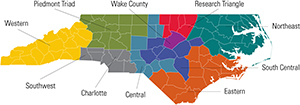How much of your data is in your control? Fifteen years ago the answer would have been simple and probably automatic for any IT manager or office worker. The answer would involve hard drives, flash drives, external hard drives or storage devices and in-office settings a company-owned and managed server. The answer has changed, and the idea that all data you create, store and access are within your control has changed just as quickly
Remember your first flash drive? Maybe it was 1 Gb, or even less. It may have cost $40 or even more for that (currently) minuscule amount of storage. Today, for about $100 you can have your data stored on multiple redundant drives, located in countries around the world, accessible to almost anyone, on any device. This seismic change has done good, brought new opportunities, and of course, has brought inevitable challenges to businesses, governments, and individuals. Dropbox, Google Drive, iCloud, Microsoft Cloud, Amazon Web Services, and many smaller players offer cheap, unlimited storage. But there’s a catch, there always is. The data is subject to rules, hacks, government requests, malicious insiders, and much more.
With the rapidly changing nature of data storage, the time to understand where your data resides and who has access to it is more important than ever. Cloud computing and storage offer amazing opportunities, consider the Khan Academy, a free online school (eLearning platform). The Khan Academy is free to all, accessible to anyone anywhere, and doesn’t take hours of waiting to access content. Now consider attempting to pull off this magic trick without cloud computing and storage. Switch gears and consider Netflix and its massive library of content and even larger network of users around the world. If Netflix relied on local storage or physical servers to handle all of the content storage and distribution, they would likely need to own tens of thousands of servers to store and deliver content in every region of the world. Instead, a global content storage and distribution network can be managed from anywhere, without much of a physical footprint anywhere.
When thinking about your own organization, you may consider your data storage needs to be much smaller than the comparison above.. But when you consider that most organizations use Gmail, Google Drive (or Dropbox), and a series of other online tools (which rely on cloud storage) which store data in the cloud, you may find your business is more like the examples than you previously thought. No you don’t need the level of complexity or security as Netflix or other multinational corporations who exist solely in the cloud. But you shouldn’t dismiss the growing reliance on the cloud and the potential downsides of doing it without careful cybersecurity consideration. Questions for consideration to ask of cloud service for storing your data and information on the cloud include:
- How often does the cloud provider scan for vulnerabilities and then remediate identified vulnerabilities?
- How often does the cloud service provider apply patches to their systems? Are any patches ever not applied?
- How do they monitor for access anomalies on their servers?
- Where are the physical servers located that will store your information?
NC State Industry Expansion solutions provides free Cybersecurity Awareness and Education online courses to help you keep your mobile devices secure.
—
Brian Vigna is an instructional designer in the professional learning and instructional design unit for NC State Industry Expansion Solutions. Brian has worked as an adult educator, trainer and instructional designer for more than eight years. Brian has taught a variety of certification and professional development courses at the collegiate level as well as in collaboration with the United States government. Brian is currently certified in CISSP, CompTIA Security+, CompTIA A+, CompTIA Network+, CompTIA Cloud Essentials. He is a Microsoft Certified Professional, AWS Solutions Architect and an AWS Cloud Practitioner. Brian is also currently pursuing a M.S. in education from NC State University.




